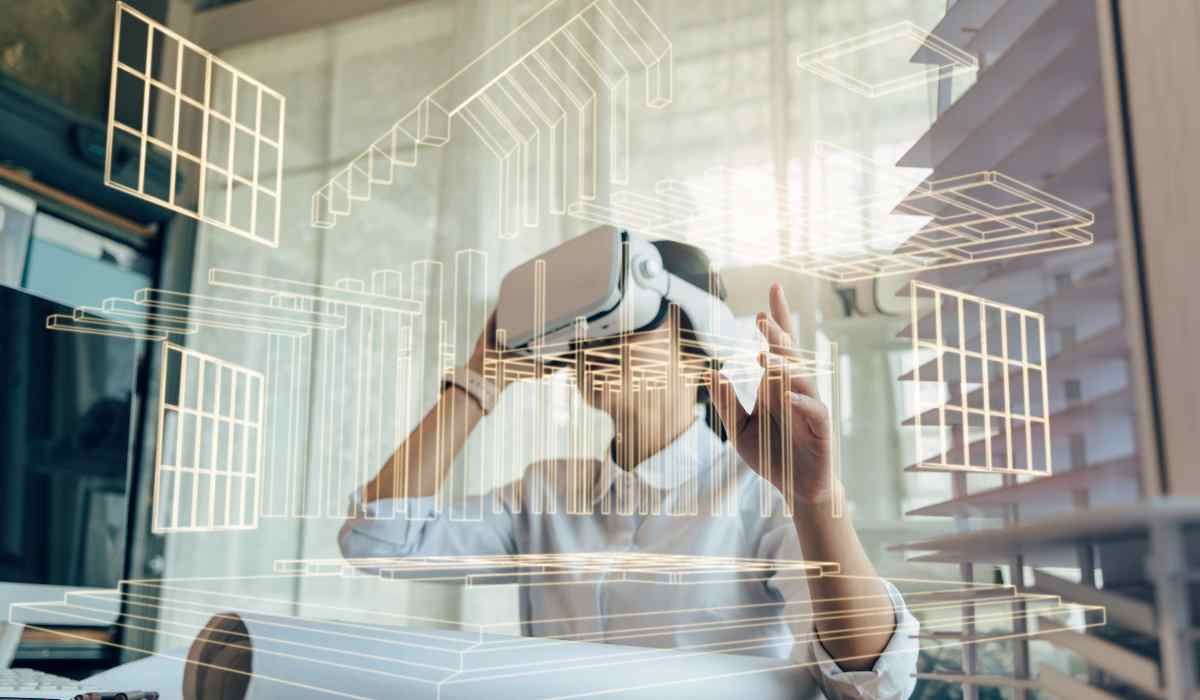The Indian real estate market has witnessed significant transformations, primarily driven by technological advancements. Technology has reshaped how properties are bought, sold, and managed, from property search platforms to smart homes. As India continues embracing digital innovations, the real estate sector is evolving rapidly, offering new opportunities and efficiencies for developers, investors, and homebuyers.
Digital transformation in property search and transactions
The rise of online property portals
The emergence of online property portals like Housing.com has revolutionised the property search process. These platforms provide comprehensive listings, virtual tours, price comparisons, and detailed neighbourhood insights, making it easier for buyers and tenants to make informed decisions without needing physical site visits.
Virtual reality (VR) and augmented reality (AR) in real estate
VR and AR technologies have transformed property viewing experiences. Virtual tours allow potential buyers to explore properties remotely, saving time and travel costs. AR applications help visualise interior design changes and furniture placements, enhancing decision-making.
Blockchain technology in real estate transactions
Blockchain offers secure and transparent property transactions. It reduces the risk of fraud by maintaining immutable records of property ownership and transactions. Smart contracts automate agreements, ensuring faster, error-free transactions without the need for intermediaries.
Impact on real estate development and construction
Building information modelling (BIM)
BIM revolutionises the construction industry by enabling detailed 3D modelling of building projects. It improves project planning, reduces errors, and enhances collaboration among architects, engineers, and contractors, saving costs and time.
The role of 3D printing in construction
3D printing technology is emerging as a game-changer in real estate construction. It allows for rapid production of building components, reducing construction time and material waste. In India, 3D-printed houses are being explored for affordable housing projects.
Innovative construction materials and techniques
Innovations in construction materials, such as self-healing concrete and energy-efficient glass, contribute to sustainable building practices. Prefabrication and modular construction techniques also enhance efficiency and reduce environmental impact.
The emergence of smart homes and smart cities
Smart home technologies
The demand for smart homes equipped with IoT devices is rising in India. Home automation systems control lighting, security, climate, and appliances remotely, offering convenience and energy efficiency to homeowners.
Development of smart cities
The Indian government’s Smart Cities Mission aims to develop urban areas with integrated technological infrastructure. Innovative city projects focus on efficient resource management, digital governance, and sustainable living, influencing real estate development and investment patterns.
Data analytics and artificial intelligence in real estate
Predictive analytics for market trends
Data analytics helps real estate stakeholders predict market trends, optimise pricing strategies, and identify investment opportunities. Predictive models analyse historical data, economic indicators, and consumer behaviour to forecast demand and price fluctuations.
AI-powered property management
AI technologies streamline property management tasks, such as tenant screening, rent collection, and maintenance scheduling. Chatbots and virtual assistants enhance customer service, responding instantly to queries and support.
The impact on real estate financing
Fintech innovations in real estate
Fintech platforms have simplified real estate financing in India. Digital loan applications, automated credit assessments, and peer-to-peer lending platforms give buyers and developers faster access to home loans and investment options.
Crowdfunding and real estate investments
Real estate crowdfunding platforms enable small investors to participate in large property projects, diversifying their portfolios with minimal capital. This democratises real estate investments, increasing market liquidity.
Sustainability and green building technologies
Energy-efficient building designs
Technological advancements promote sustainable construction practices. Green buildings incorporate energy-efficient designs, solar power systems, rainwater harvesting, and waste management solutions, reducing environmental impact and operational costs.
The role of technology in sustainable urban planning
GIS (Geographic Information Systems) and smart grid technologies support sustainable urban planning. They optimise land use, transportation networks, and resource distribution, enhancing the quality of life in urban areas.
Challenges and limitations of technology in real estate
Digital divide and accessibility issues
Despite technological progress, digital access remains challenging in rural and underdeveloped areas. Limited internet connectivity and digital literacy hinder the widespread adoption of real estate technologies across India.
Data privacy and cybersecurity concerns
Data privacy and cybersecurity have become critical concerns with increased reliance on digital platforms. Protecting sensitive property and personal data from cyber threats requires robust security measures and regulatory frameworks.
High initial investment costs
Adopting advanced technologies often involves significant upfront costs, which may be a barrier for small developers and real estate firms. However, long-term efficiency and cost-savings benefits can offset these initial investments.
The future of technology in India’s real estate market
Integration of advanced technologies
The future of Indian real estate lies in integrating advanced technologies like AI, blockchain, IoT, and big data. These technologies will enhance efficiency, transparency, and customer experiences, reshaping the real estate landscape.
Growth of proptech startups
The rise of prop-tech startups in India is driving innovation in real estate. These startups offer solutions for property management, digital transactions, and smart home technologies, contributing to the sector’s digital transformation.
Increasing focus on sustainability
As environmental concerns grow, the real estate sector will prioritise sustainable practices. Innovative city projects, green buildings, and energy-efficient technologies will shape future real estate developments in India.
Housing.com POV
Technological advancements have profoundly impacted India’s real estate market, transforming how properties are developed, bought, sold, and managed. Technology continues to drive efficiency, transparency, and innovation in the sector from digital platforms and smart homes to sustainable urban planning. As India embraces digital transformation, the real estate industry is poised for sustained growth and evolution in the years to come.
FAQs
How has blockchain improved property transactions in India?
Blockchain ensures secure, transparent transactions with immutable ownership records and smart contracts, reducing fraud risks.
What role does AI play in property management?
AI automates tasks like tenant screening, rent collection, and maintenance, improving efficiency and customer service.
Why are smart homes gaining popularity in India?
Smart homes offer convenience, security, and energy efficiency through IoT-enabled automation systems.
How does 3D printing benefit the Indian construction sector?
3D printing speeds up construction, reduces costs, and minimises material waste, especially in affordable housing projects.
What impact has data analytics had on real estate investments?
Data analytics helps predict market trends, optimise pricing, and identify profitable investment opportunities.
How are fintech platforms transforming real estate financing?
Fintech simplifies loan applications, offers quick credit assessments, and provides diverse funding options for buyers and developers.
What challenges does technology adoption face in Indian real estate?
Challenges include digital divide issues, data privacy concerns, and high initial investment costs for advanced technologies.
| Got any questions or point of view on our article? We would love to hear from you. Write to our Editor-in-Chief Jhumur Ghosh at jhumur.ghosh1@housing.com |







